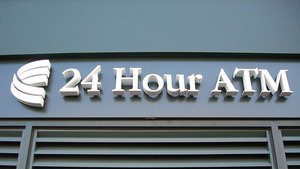If you want to make the most out of your money, you must work with the bank that is best for your financial situation. It’s not always easy to figure out which bank to use, but if you do some comparison shopping, you can find the bank that will most help your financial situation.
Online Banking – Compare Internet Bank Accounts
You might want to consider opening an account at an Internet bank rather than at a physical bank. Internet banks have several advantages o
 Over other types of banks. For one thing, they generally pay higher interest rates on savings than traditional banks, and some may pay interest on checking account balances as well. Internet banks also tend not to charge overdraft fees if you make a mistake, although they will close accounts if you have too many overdrafts in a given period of time. Transfers to and from this type of bank account also tend to be quicker because the bank is completely electronically based.
Over other types of banks. For one thing, they generally pay higher interest rates on savings than traditional banks, and some may pay interest on checking account balances as well. Internet banks also tend not to charge overdraft fees if you make a mistake, although they will close accounts if you have too many overdrafts in a given period of time. Transfers to and from this type of bank account also tend to be quicker because the bank is completely electronically based.
You may not want to house all your money in an Internet bank, however, because these banks don’t have a physical location for you to go to. If you need to make out a money order for a large amount, you may have trouble doing so using your internet bank’s debit card, and you also might have to pay ATM fees since these banks don’t have ATMS for you to go to.
ATM fees can be a problem regardless of the type of bank you decide to work with. Many ATMs are set up to charge customers fees if they use a card not associated with the ATM’s bank. Some banks charge additional fees on top of the ATM fee, so you could spend up to $5 every time you use an ATM not associated with your bank. This can really become a problem if your bank doesn’t have lots of ATMs in your town or if you’re traveling somewhere where you can’t access the ATM for your bank.
In addition to ATM fees, some banks charge debit card fees. These banks charge a small fee each time you use your debit card. Some banks only charge debit card fees if you use your debit card for less than a certain amount. Either way, these fees can also add up over time, so make sure you understand the fee structure before signing up for a bank account or using your debit card for the first time.
You’ll want to open a couple of savings accounts to help your financial management. One is a rewards account, where you can put small amounts of money aside each week towards a long term reward such as a vacation. You’ll also need an emergency savings account so that you can put aside money to use if you lose your job or face a financial crisis.
Personal Savings Accounts – Open a Bank Savings Account
When opening these savings accounts, you’ll need to look for banks that won’t charge monthly fees if you have a low balance in your account. Some banks charge $5 or more for each month where you have less than $1,000 in savings. This can deplete your savings quickly, particularly in your rewards account, so you might want to think twice before opening such an account. You also want to sign up with a savings account that has the highest APR possible so that you maximize your interest on your account.
Although you may be feeling confused or overwhelmed by all your banking options, it isn’t as difficult to figure out as you might think. Just take the time to compare three or four bank before making a decision so that you can make the right decision for your financial needs.
